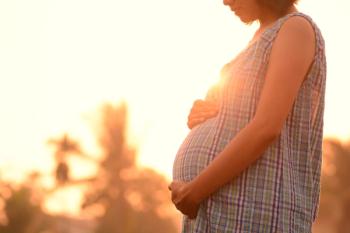
Therapy for mothers with PPD can reduce risk of infant’s psychiatric problems
An investigation provides insight on whether cognitive behavioral therapy for treating a mother’s postpartum depression (PPD) can also reduce the risk of emotion regulatory and psychiatric problems in her child.
It should come as no surprise that the mental health of parents can have a profound impact on a child’s health. Previous research has shown that a child exposed to postpartum depression has an increased risk of emotion regulatory and psychiatric problems. An
The researchers recruited the infants delivered to mothers who had a primary diagnosis of major depressive disorder. These infants were matched 1:1 to infants who had nondepressed mothers and they were matched on infant age, sex, and socioeconomic status. The mothers who had postpartum depression underwent 9 weeks of group cognitive behavioral therapy. The mother-infant pairs were tested at 2 time points: visit 1 occurred after the first cognitive behavioral therapy session for the invention group or a baseline visit for the control group and visit 2 happened after all 9 weeks of cognitive behavioral therapy had been completed for the intervention group or 9 weeks after the baseline visit for the control group. The researchers assessed infant emotion regulation which was tested using heart rate variability, resting‐state frontal electroencephalography alpha asymmetry, and maternal and partner ratings about regulation behaviors. Differences in maternal characteristic such as whether the depression began in pregnancy or after delivery as well as if the mother took antidepressants were also noted to see if they had an impact on the changes.
A total of 80 mother/infant pairs were included in the research. At visit 1, the researchers found that the offspring of women with postpartum depression showed poorer emotional regulation when compared to the healthy control infants. Following visit 2, the infants of mothers with postpartum depression who had undergone therapy showed improved emotion regulation through increased heart rate variability (p = .003, d = 0.56), shifted from right to left resting‐state frontal electroencephalography alpha asymmetry (p = .01, d = 0.60), as well as reported orientation or regulation behaviors from both mother (p = .015, d = 0.29) and partner (p = .049, d = 0.35) and they no longer differed from the infants in the control group. Additionally, the maternal characteristics were not found to account for these changes.
The researchers concluded that cognitive behavioral therapy for mothers with postpartum depression can help reduce the risk of emotional dysregulation in their children.
Reference
1. Krzeczkowski J, Schmidt L, Van Lieshout R. Changes in infant emotion regulation following maternal cognitive behavioral therapy for postpartum depression. Depress Anxiety. January 19, 2021. Epub ahead of print. doi:10.1002/da.23130
Newsletter
Access practical, evidence-based guidance to support better care for our youngest patients. Join our email list for the latest clinical updates.






